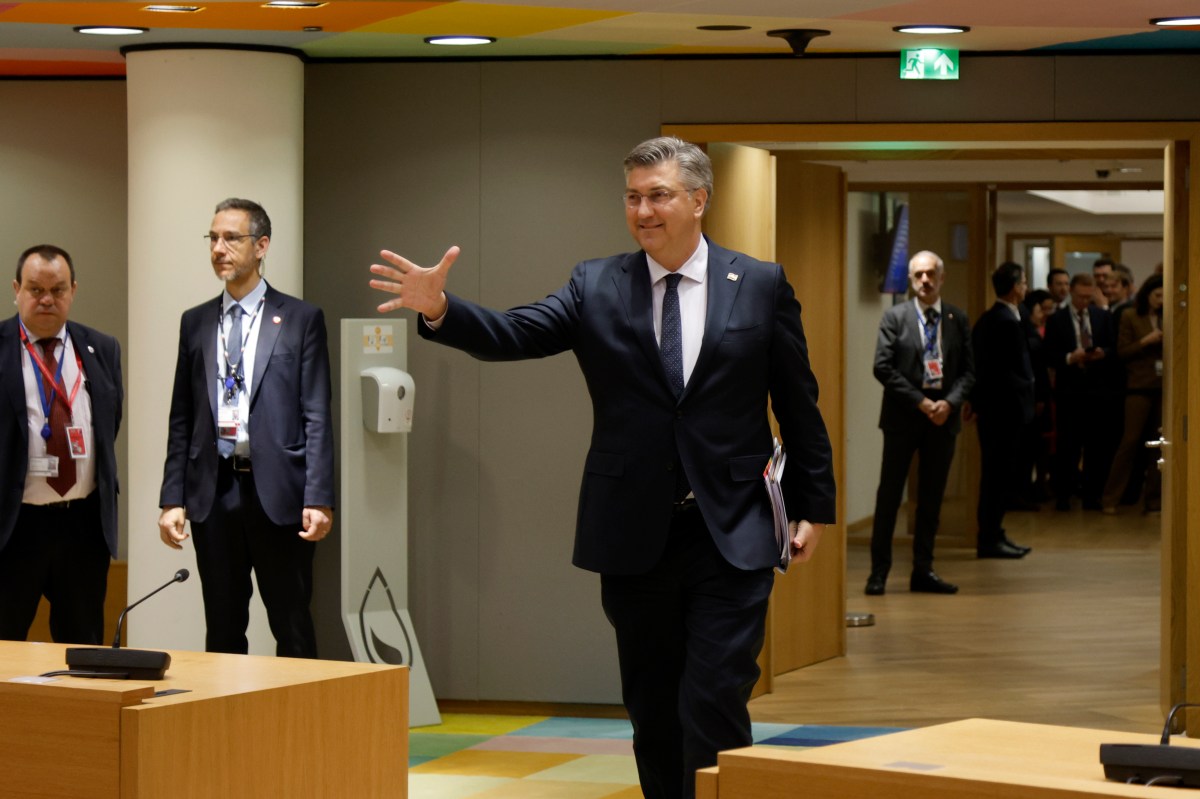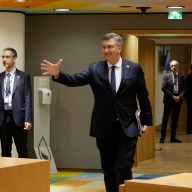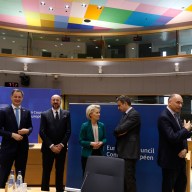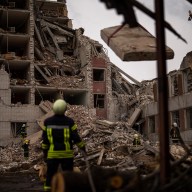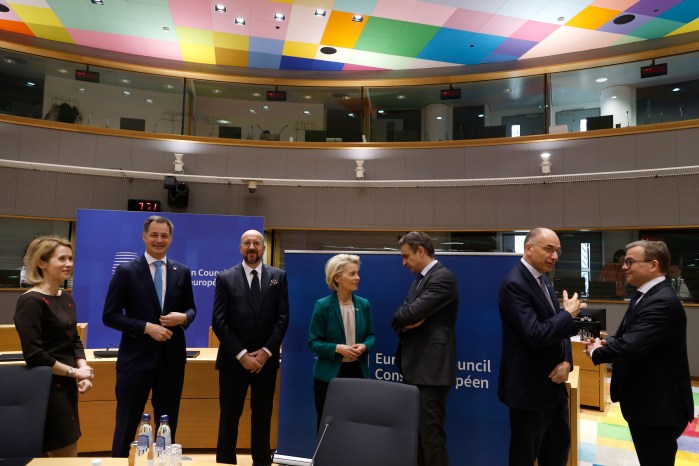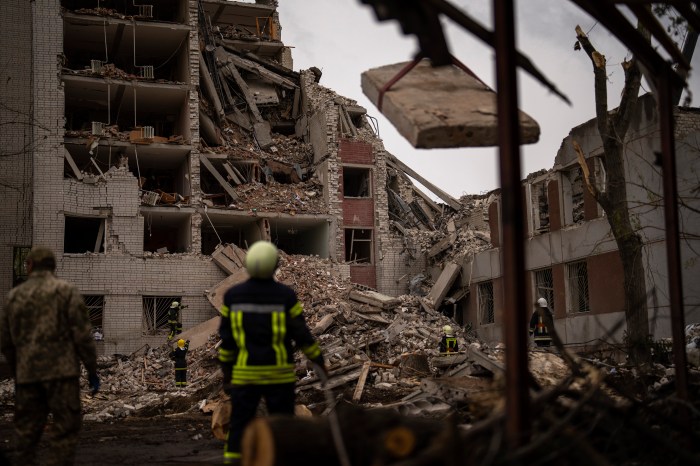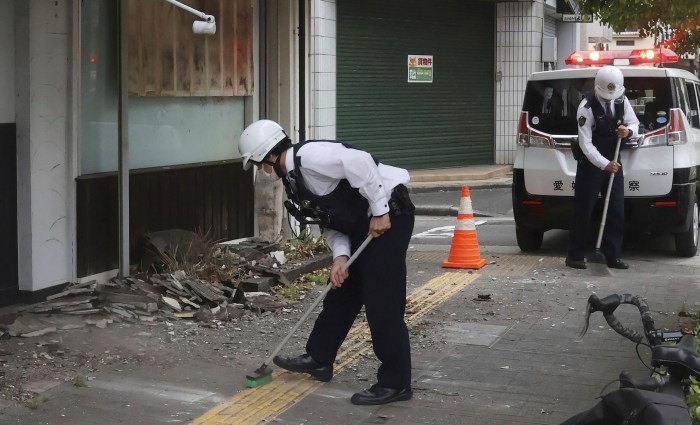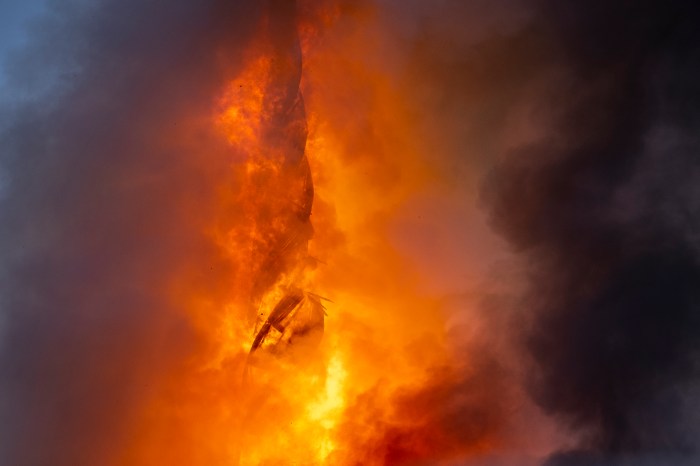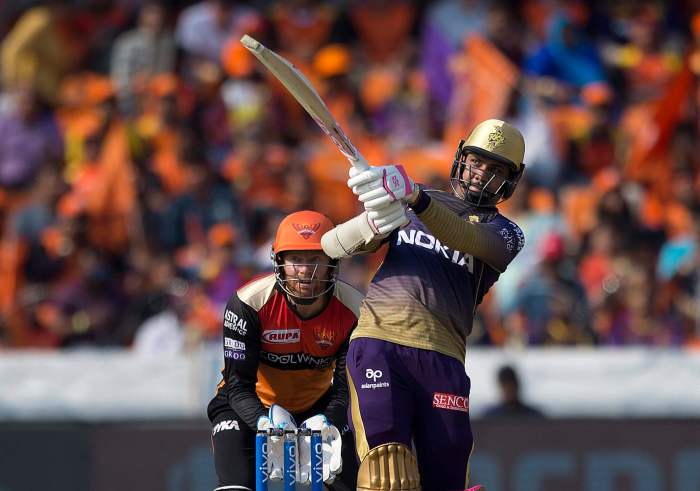ZAGREB, Croatia (AP) — Croatia ’s ruling conservatives said Thursday that talks have already started about the formation of a new governing majority following a highly contested parliamentary election that saw a far-right party emerge as a potential kingmaker.
Prime Minister Andrej Plenković, who is the leader of the Croatian Democratic Union party, or HDZ, said that the party has contacted some of the potential future partners and more talks will take place on Thursday.
Preliminary results of the vote on Wednesday showed that Plenković’s HDZ won 61 seats in the 151-seat parliament, which means the party has to form a coalition government to stay in power.
The main opponent, center-left Social Democratic Party, backed by President Zoran Milanović, got 42 seats while the far-right Homeland Movement was third, with 14 seats, according to the tally released by the State Election Commission.
Plenković offered no details about the potential future alliance. If he remains the prime minister, that would mark his third consecutive term at the post.
“Everything is going well,” he wrote on Facebook. “You will soon know with whom we will form the new majority.”
Plenković has faced accusations of corruption as Croatia, a European Union and NATO member, struggles with the highest inflation rate in the eurozone, a labor shortage and a surge in migration.
At stake at the election on Wednesday wasn’t just the Adriatic Sea country’s future domestic policies, but also the EU’s unity as it grapples with the instability from Russia’s full-scale invasion of Ukraine.
If the HDZ stays in power as expected, the country would continue on a pro-Western course in supporting Ukraine in its fight against Russia. Milanović is a critic of EU’s policies over the war in Ukraine and his government could potentially open space for stronger pro-Russia influence in the country, akin to Hungary and Slovakia.
The clash between Croatia’s main political leaders had fuelled political tensions before Wednesday’s vote that was also seen as a test of popularity for the conservatives before the European Parliament election in June.
Apart from the main three groups, the pro-religious Most, or Bridge, party won 11 seats while green-leftist Mozemo, or We Can, group won 11. Mozemo have called for a minority government that would tackle reported widespread corruption in the country.
The far-right Homeland Movement is a relatively new political party made up largely of radical nationalists who had left the more center-right HDZ. The party is led by the hard-line mayor of the eastern town of Vukovar, which was destroyed during the 1991-95 war, which Croatia fought after splitting from the former Yugoslavia.
The HDZ has largely held office since Croatia gained independence. The Balkan nation became an EU member in 2013, and joined Europe’s passport-free travel area and the eurozone last year.
After Milanović scheduled the election and announced his surprise bid for prime minister, he began campaigning on behalf of the SDP. But Croatia’s constitutional court judges stepped in, saying the move was unconstitutional and he must resign to run.

